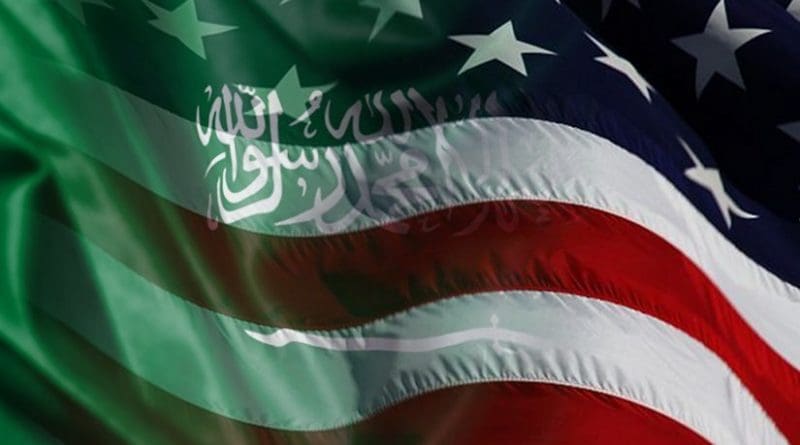Saudi Arabia, US Have Chance To Reenergize Their Relationship – OpEd
By Arab News
By Dr. Abdel Aziz Aluwaisheg *
President Joe Biden’s visit to Saudi Arabia is likely to mark a new beginning for US engagement with the region, which has waned of late. While the timing may have been prompted by geopolitical and economic crises elsewhere, the visit should not be looked at as a one-off, transactional meeting. Rather, it is part of a partnership going back nine decades, from the signing in 1933 of the first Saudi-US treaty formally establishing economic ties and mutually extending “most favored nation” status to each other — and concluding in the same year the first concession with American oil companies — to the historic meeting in 1945 between King Abdulaziz and President Franklin Roosevelt. In a 1946 letter to the king by Roosevelt’s successor, Harry Truman, the president already referred to “the friendly relations which have long existed between our two countries.” Every American president since then has closely engaged with Saudi leaders.
At the heart of this long-standing strategic relationship lies security, both ways. The two countries have been security partners in this region and beyond. The US has been an integral part of regional security, in which Saudi Arabia has often been at the center. The Kingdom has played a key reciprocal role in supporting US policies elsewhere, from the Second World War to the present. Whether it is terrorism or malign state actors, the two countries have mostly worked in unison.
Biden’s visit, then, is not about transactions but about building on this well-developed relationship to address today’s pressing problems, including regional security being threatened by an increasingly hostile Iran, the war in Ukraine, energy security, food security and threats to the post-COVID-19 global economic recovery.
Tehran has recently disregarded the International Atomic Energy Agency’s warnings, shut down parts of surveillance systems at its nuclear facilities and increased the level of its uranium enrichment. It is dragging out nuclear talks and introducing ever-changing, extraneous demands so as to complete its nuclear upgrade and render the Joint Comprehensive Plan of Action nuclear deal useless.
Iran has continued to provide weapons, money and fighters to terrorist groups and sectarian militias to destabilize countries in the region and prevent political solutions not to its liking. In Lebanon, Yemen and Iraq, it has used violent militant groups to subvert the political process.
The US and its partners need to agree on the elements of a credible deterrence to match Iran’s escalation, whether in its nuclear program, missile and drone programs or malign regional activities. Existing frameworks for dealing with these issues need to be fully activated and strengthened, including joint working groups and other high-level policy coordination mechanisms. New instruments should also be considered, including formal agreements on collective defense.
Once that security partnership is sorted out, other elements can be more easily addressed. Energy, economic cooperation and education are the three other most important parts of the Saudi-US partnership historically and they could serve as pillars for closer cooperation post-summit. Americans have played an outsized role in the history of the Saudi oil industry and Saudi Arabia has been the most effective stabilizing force in oil markets. That partnership should continue in light of the global energy crunch — a crisis that cannot be resolved only through sustained engagement and planning for the future. American companies are already involved in the development of green and transition energies in Saudi Arabia, but there is room for growth in hydrogen production and solar energy.
Beyond oil, the two countries are natural economic partners. US companies have contributed significantly to realizing early Saudi economic development plans and Saudi Arabia has invested heavily in US capital markets. The current Saudi blueprint for the future, Vision 2030, is centered on investment and creating sustainable development for the Kingdom’s post-oil future. The US is a key player in promoting investment abroad and at home. It is the largest recipient of foreign direct investment (about $5 trillion in FDI stock) and its investments abroad have exceeded $6 trillion. US companies could contribute significantly to realizing the goals of the recently unveiled investment strategy of Saudi Arabia and Vision 2030. Their two-way trade, currently about $25 billion annually, can be expanded through closer engagement.
A related goal for both nations is fighting climate change. Crown Prince Mohammed bin Salman has introduced a number of green initiatives for Saudi Arabia and for the Middle East at large. They open attractive opportunities for governments, the private sector and governmental and nongovernmental organizations to work together to slow down and perhaps even reverse climate change by reducing emissions, fighting encroaching desertification, and reforestation, among other mechanisms included in those initiatives.
Education has been another important part of the relationship. Hundreds of thousands of Saudis have received their education in the US and thousands of American students and scholars have also been to Saudi Arabia. The knowledge and diversity those students and scholars have brought to their institutions add an indispensable human connection between the two cultures that is likely to continue and thrive.
Biden’s visit can be a positive turning point in a historical relationship, especially when the summit is followed by the establishment of reliable mechanisms for taking quick action on what is agreed on and effective dialogue when there are differences of opinion.
- Dr. Abdel Aziz Aluwaisheg is the GCC assistant secretary-general for political affairs and negotiation, and a columnist for Arab News. The views expressed in this piece are personal and do not necessarily represent GCC views. Twitter: @abuhamad1

